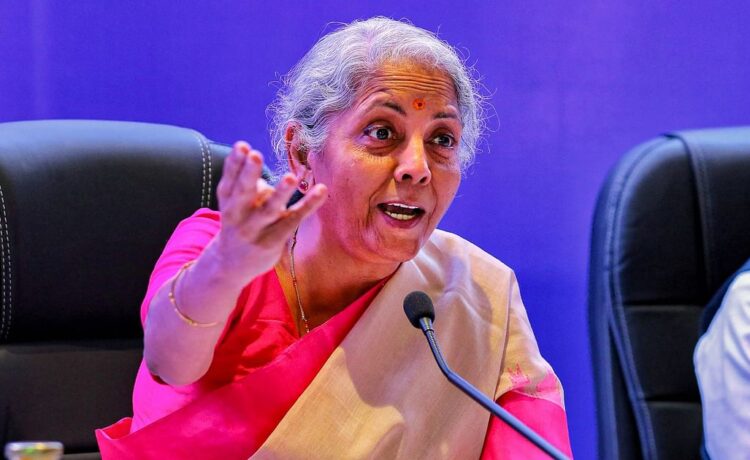New Delhi: Finance Minister Nirmala Sitharaman on Saturday said that inadequate access to developmental finance is hindering developing economies from achieving Sustainable Development Goals (SDGs) and underscored the urgent need to address this $4 trillion annual financing gap.
Addressing the third Voice of Global South Summit virtually, Sitharaman said that recent reports reveal that the implementation of many SDGs in developing economies is stagnating, with some indicators even regressing.
The SDG financing gap is estimated to be $4 trillion annually for developing countries, she said.
Observing that the global South is affected by global uncertainties, she said one in four developing countries will be poorer by the end of this year than they were before the pandemic as per a recent World Bank report.
“Growth thus remains insufficient to drive progress in development and poverty reduction. To accelerate progress on SDGs, there is an urgent need to address the $4 trillion financing gap.
“During India’s presidency, the G20 recommended wider adoption of social impact instruments and other blended finance instruments, monitoring and measurement frameworks and risk mitigation measures,” she said.
“Our efforts also led to the G20 Sustainable Finance Technical Assistance Action Plan, which is now being implemented under the Brazilian presidency to build capacity for scaling up sustainable finance tailored to the needs of Global South,” she said.
Stressing that growth remains the best antidote to many economic and social challenges, she said it creates a positive feedback loop where improved economic performance leads to greater financial opportunities.
“Our priority should be a people-centric growth path that empowers the most vulnerable and marginalised to participate in the development journey,” she said.
Talking about reforms at multilateral development banks, Sitharaman said these institutions need to be comprehensively revamped so that they can mobilize the much-needed additional financial flows to help developing countries meet their development needs and address global challenges.
Fresh capital infusion should remain an active option for consideration of MDB boards, along with balance sheet optimization measures and financial innovations, she said,
Besides, she said, “It is critical that the financing requests made to MDBs are met with speed and agility. This will require reforms, both at operational levels as well as identifying new additional sources of finance.”
On concessional finance, she said, while low-income countries will remain the priority, it is important that the dedicated concessional windows are made available for middle-income countries to address climate-related challenges.
With regard to private capital mobilization, she said, MDBs need to engage with credit rating agencies and explore how to better incentivize the flow of private capital for development financing.
Published 17 August 2024, 16:22 IST















